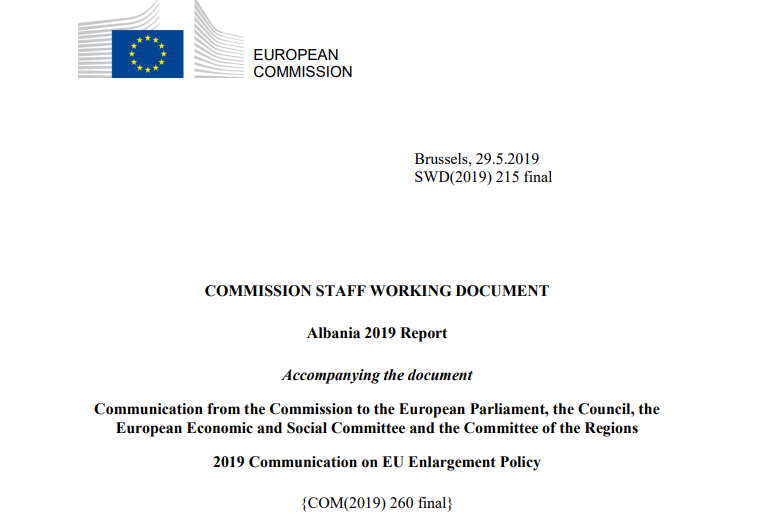TIRANA, May 29
The country reports for the six Western Balkan countries and Turkey were published on Wednesday by the European Commission. Here are the findings on the economic and business situation in Albania. Full report below.
According to the report, the business environment has improved only in some aspects. Progress in the implementation of comprehensive justice reform is expected to contribute to strengthening the business environment and attracting investments. Some progress was made on increasing labor market participation and the quality and effectiveness of labor market institutions and services, but the employment rate and labor market participation remain low, and the informal economy is still a significant job provider.
Albania has made some progress and has some level of preparation in terms of capacity to cope with competitive pressure and market forces within the Union.
In order to improve the functioning of the market economy, Albania should in particular:
- advance fiscal consolidation and developing a plan to mobilize revenue and to address informality;
ensure monitoring and control of fiscal liabilities stemming from Public-Private Partnerships and of arrears; - improve access to finance by strengthening collateral enforcement and raising financial
inclusion; - improve the labor market relevance, quality, and targeting of active labor market
policies, including upskilling of adults
Albania has made some progress in terms of energy, transport, and digital infrastructure development, but lack of productive know-how, low education levels and technology transfers hinder Albania’s competitiveness and integration into international value chains. Exports and regional integration are below potential. Efforts to improve education and training show some results but reforms need to continue in particular to better address rural areas and vulnerable groups.
Albania’s capacity for research, development, and innovation remained very low.
In order to improve competitiveness and long-term growth, Albania should in particular:
- increase spending on education and research in the percentage of GDP and implementing the envisaged reforms to vocational education and training;
- improve the planning and execution of public investment;
- make better technical support services locally available for micro, small and medium-sized enterprises to help them to invest, innovate and to export
Albania’s competitiveness and private-sector development remained below potential, as efforts to improve the business environment had poor results.
Although judicial and institutional reforms continued, ineffective regulation and informality continue to pose major challenges for businesses. Progress has been made on judicial reforms, but this has not yet resulted in a more favorable business environment.
State involvement and public subsidies remained overall low in the Albanian economy, but the increased reliance on PPPs raises the potential of state influence in certain markets.
The private sector remained dominant in the economy, but although overall market liberalization is well advanced in Albania, there are delays in the liberalization of the energy market.
The economic upswing has translated into increasing employment and lower unemployment.
FDI inflows into Albania from the EU grew strongly over the last 2 years.
The economic upswing has translated into increasing employment and lower unemployment.
Three trends continue to transform the structure of the Albanian economy:
- the significant shift of employment to the non-agricultural private sector;
- the declining importance of agriculture;
- and the increasing service orientation of the economy.
Full Report here: Albania 2019 Report
Credit: europa.eu

Leave a Reply
You must be logged in to post a comment.